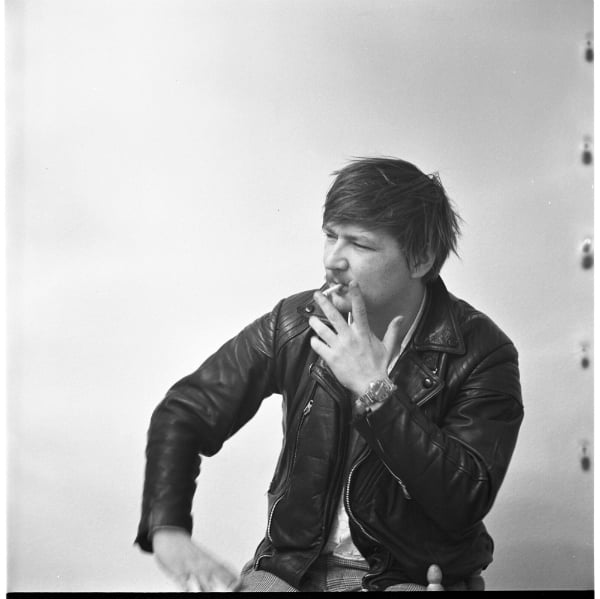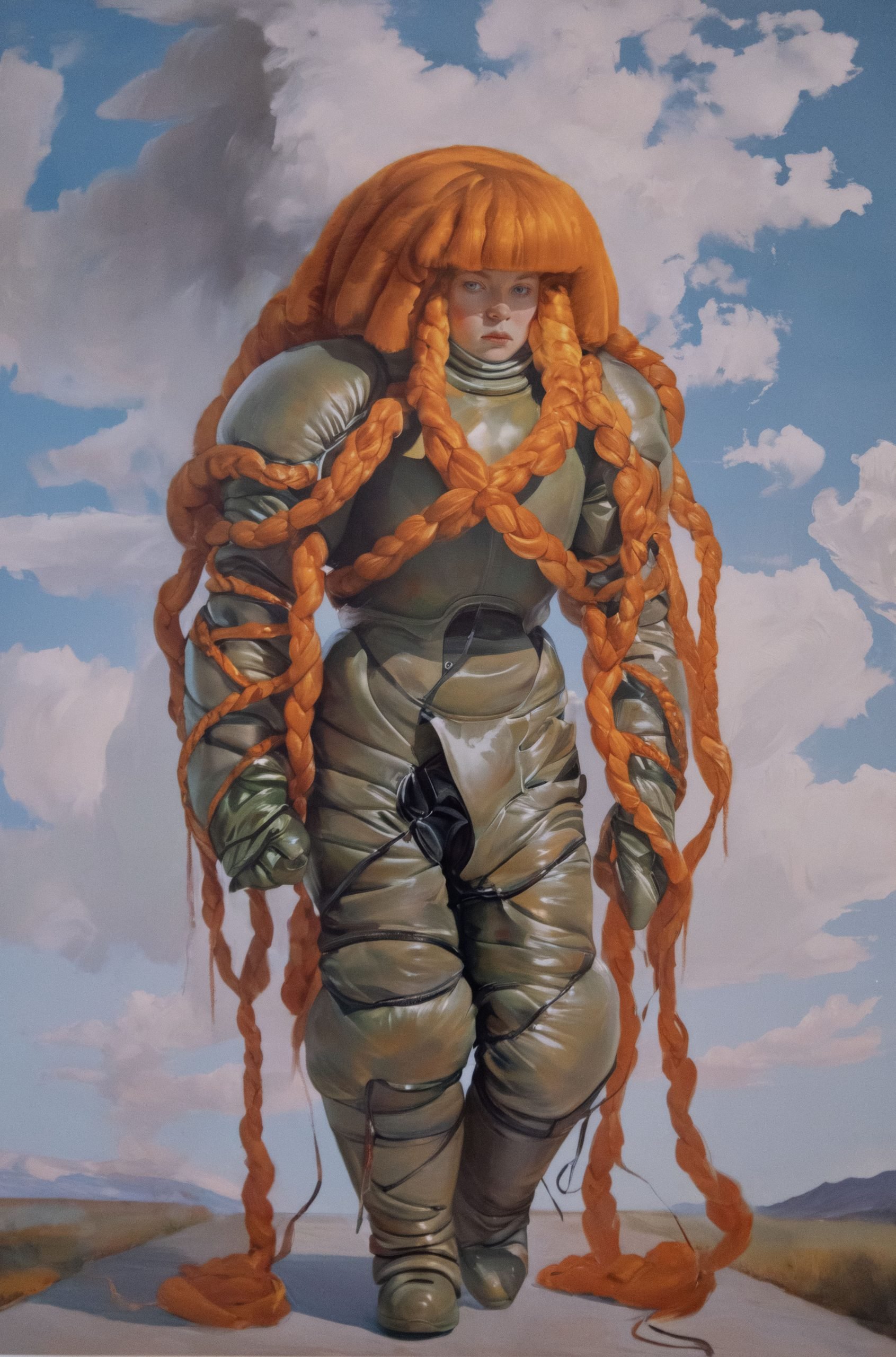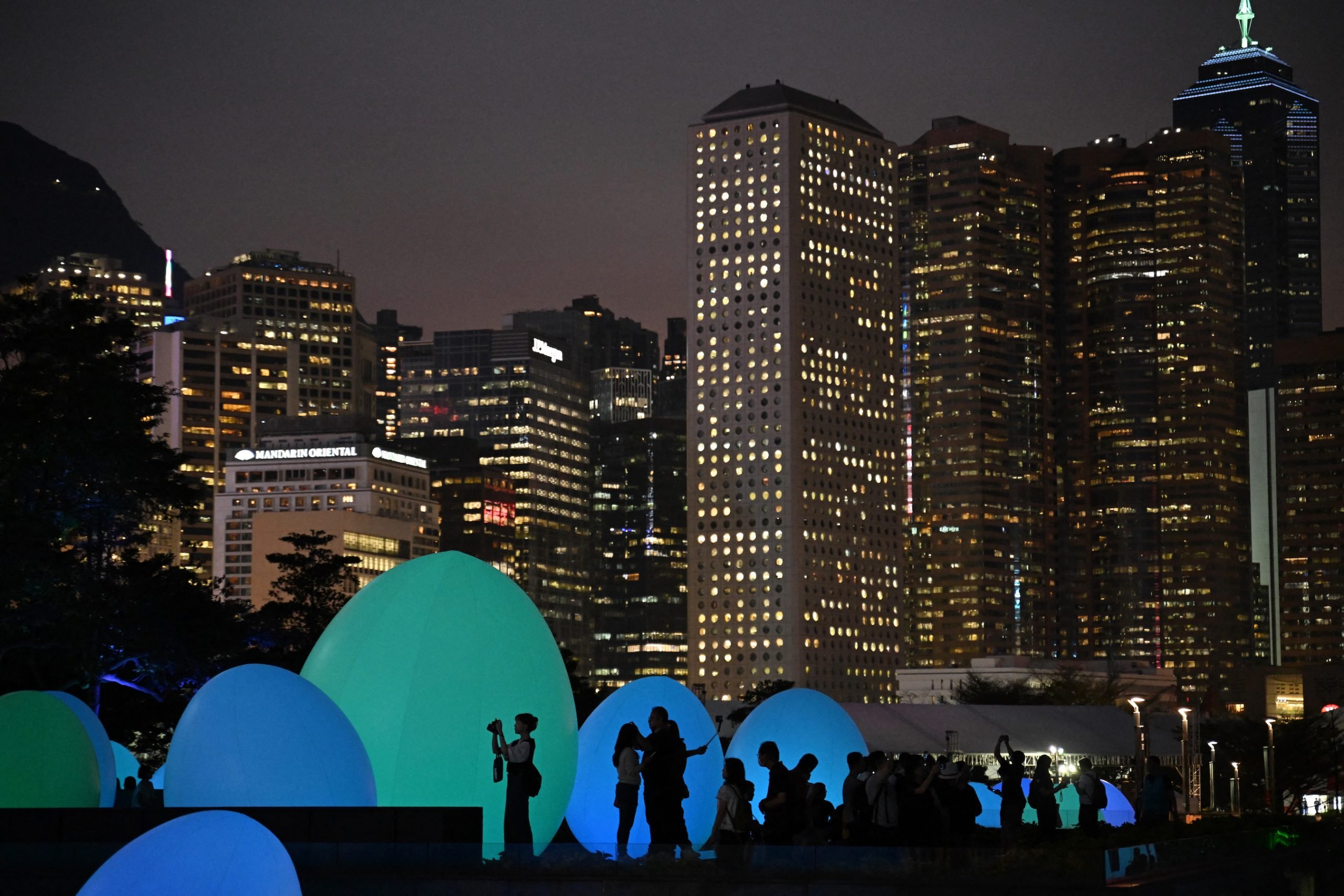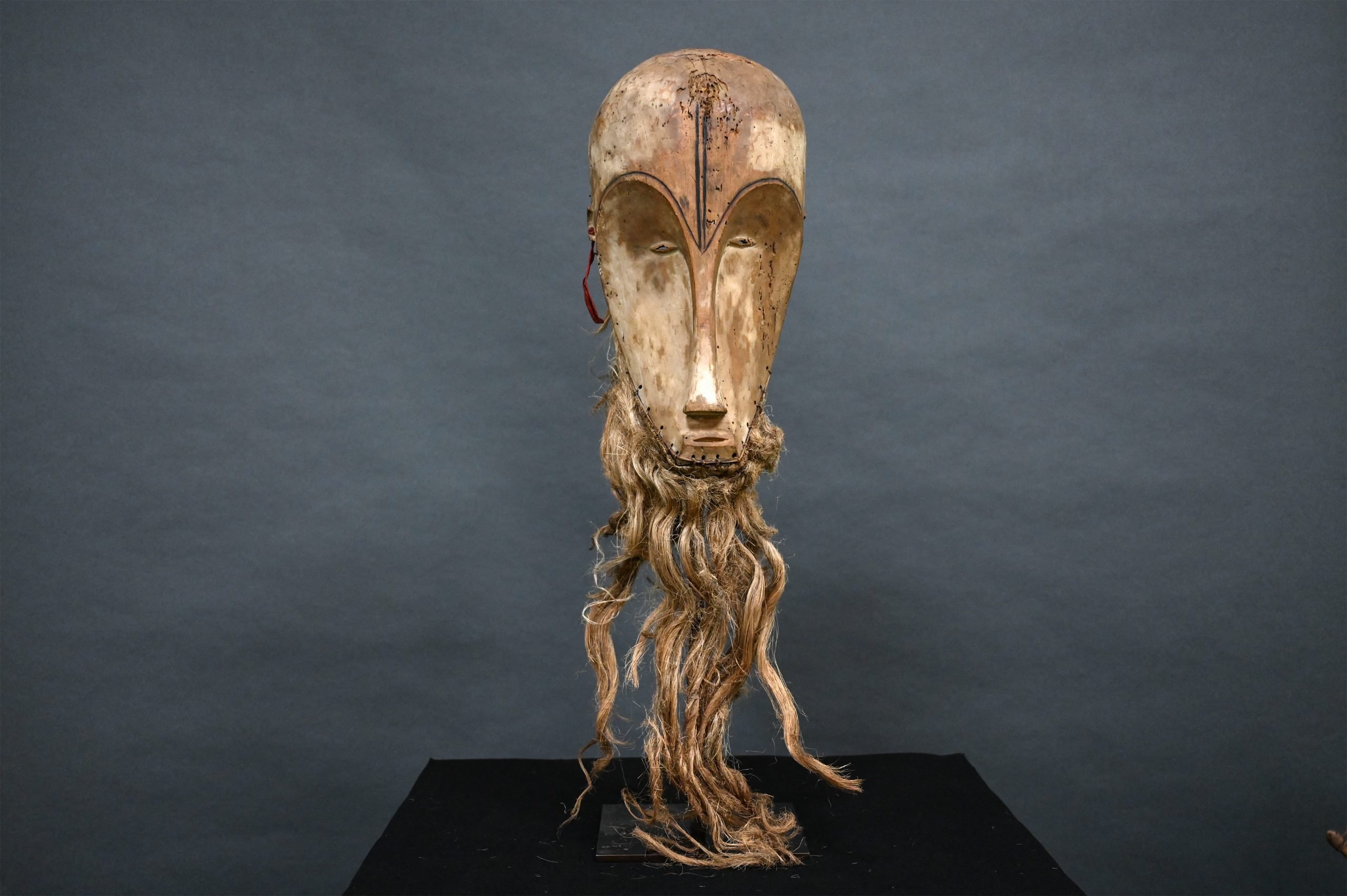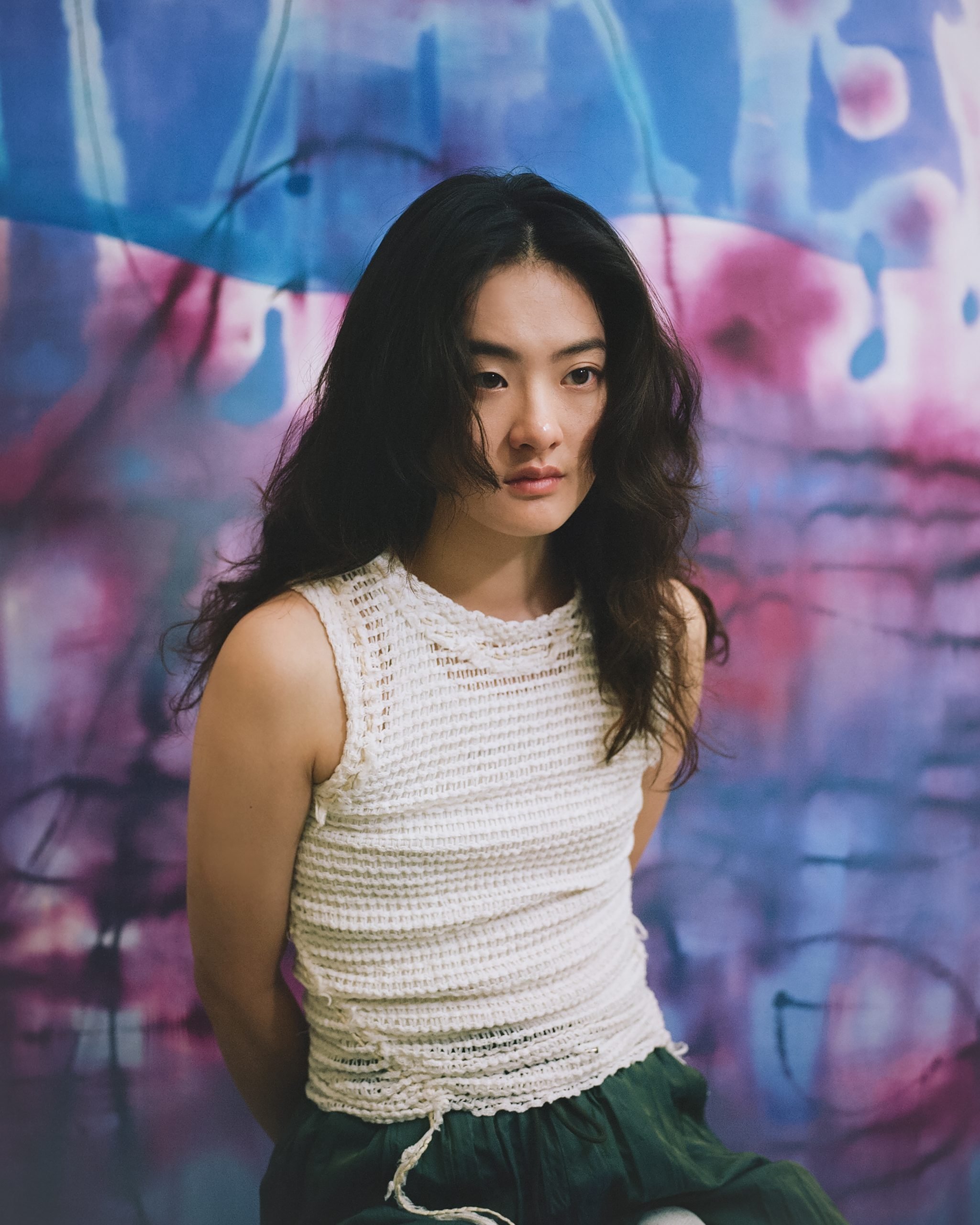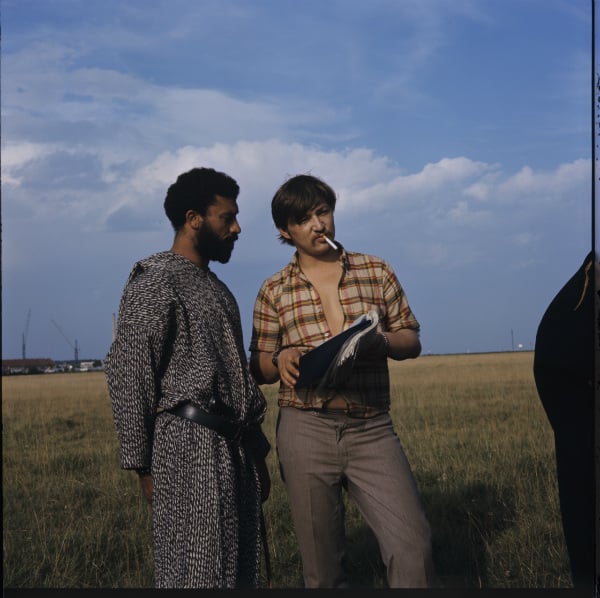
Rainer Werner Fassbinder and El Hedi ben Salem on the set of Händler der Vier Jahreszeiten 1971
Photo: Peter Gauhe, © DIF Frankfurt
The acclaimed German film director Rainer Werner Fassbinder would have turned 70 this year, on May 31.
To celebrate this landmark anniversary, the Deutsches Filmmuseum, in collaboration with the Martin-Gropius-Bau in Berlin, has organized the exhibition “Fassbinder—NOW,” which examines the frenetic creative universe of the legendary rebel.
A central figure in the New German Cinema, his now-iconic films have an enduring influence on contemporary artists.
Growing up in post war Germany, Fassbinder’s oeuvre often constituted biting critique of German society, its xenophobia, bourgeois values, and institutional violence.
The filmmaker even cast his own mother in unsympathetic roles as punishment for her youthful Nazi sympathies. His surrogate family was his circle of friends and lovers, who also acted in his films.
The director—who died in 1982, aged 37, from a drug overdose—had a short but remarkably prolific career. He began directing theater plays at just 21, and in the course of 15 years, Fassbinder shot 40 feature films and two television series, produced 24 theater plays, completed several radio and video productions, and acted in 36 film.
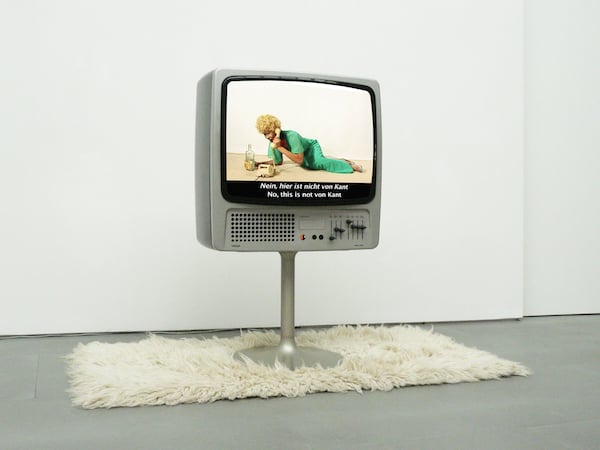
Ming Wong, Learn German with Petra von Kant (2007)
Photo: Courtesy Ming Wong and carlier|gebauer
The show will present a variety of media, offering unprecedented access to Fassbinder’s work and life, including film excerpts, press clippings, personal notes and letters, and even shooting schedules.
Fassbinder’s key collaboration with the costume designer Barbara Baum—with whom he worked in masterpieces such as the Marriage of Maria Braun (1979) or Berlin Alexanderplatz (1980)—will also be examined in the exhibition, through the presentation of original costumes and sketches.
Crucially, the show will also tackle the pervasive influence that Fassbinder has on a group of contemporary artists—including Jeff Wall, Tom Geens, Maryam Jafri, Ming Wong, Olaf Metzel, Jeroen de Rijke and Willem de Rooij—who all have referenced the aesthetics and concerns of the German director and incorporated them into their own practices.
“Fassbinder—NOW” will be on view at the Martin-Gropius-Bau museum in Berlin, from May 6-August 23.
Follow Artnet News on Facebook:
Want to stay ahead of the art world? Subscribe to our newsletter to get the breaking news, eye-opening interviews, and incisive critical takes that drive the conversation forward.
